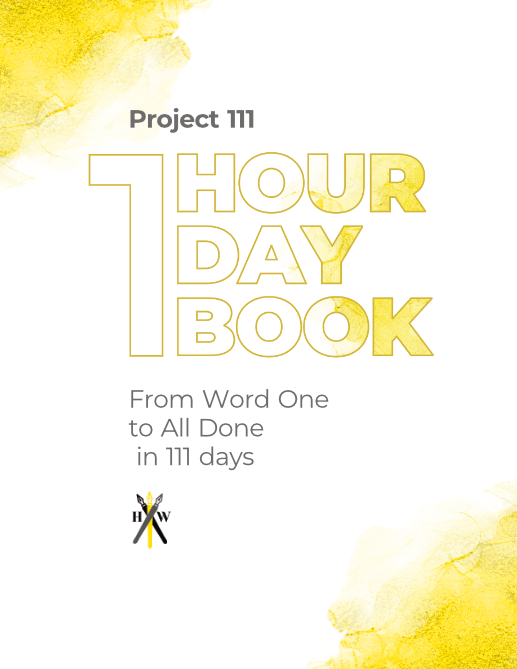Finding writing motivation can be difficult, and many writers feel apprehensive before writing because writing is HARD.
You’re taking story inspiration your brain has and trying to figure out how best to translate it into words. You have a certain feeling that the story gives you that you want to convey in your writing. You have grandiose plans for your plot and characters that seem nearly impossible to put into words.
And you’re excited!
But then you sit down to work on your writing project. You think, “Oh yeah! This is going great. I bet I have about a thousand words already.” Then you check your word count and you’re sitting pretty with 359 words after the grueling process of managing beauty, readability, entertainment, depth, and many other writing principles. Not as productive of a writing session as you’d hoped.
Then you think, “Wow, that’s pretty tough. I think I just need to take a break.” So you go and put on Elden Ring to put your mind at ease. Then a few hours pass by, and you think about working on your novel again.
“Nah,” you think. “This is way more fun. I’ll keep playing this and shirk my responsibility that I’ve set only to myself.”
This may or may not be a true story. But the underlying principle deals with motivation.
How do we motivate ourselves to write? Do we make it a chore? Do we make it fun? Do we have to set a goal? Make it a habit? Where does motivation come from with writing?
While every writer is different, finding intrinsic motivation can be extremely helpful. We’ll discuss some ways that you can develop good writing motivation that will help you become a better writer and give you the drive to finish your writing project.
Table of Contents
Why Do You Write?

It may sound overly simple, but asking yourself this question and really figuring out is the first step to understanding your motivation. Once you know why you write, you can build ways around that to better establish your writing motivation and set up some routines that prioritize that mentality.
Do you write because you want to be famous? Do you write because you find it cathartic? Do you write because you want people to read your words? Do you write because you hope to make multi-million dollar kickstarters? Or do you write because writing lets you really explore your creativity?
Obviously there are so many other reasons to write, but these questions could get you thinking. Dig as deep as you can into this idea and you should be able to understand part of your motivation.
If you write because you like having people read your stuff, then a writing group will probably be excellent for you! If you write because you want to make money, then figure out how to connect the two. If you’re a person who just likes creating things, then you’ll need to find ways to prioritize that.
Finding why you write is the first step towards understanding your motivations.
But your desire to write won’t stem from just one place. Remember all these different reasons as each may be an important tool in actually helping you sit down to write.
It may seem like a simple thing, but but one option you have to improve your writing motivation is to get a physical representation of that “Why” and then place it in your path so you’ll see it often.
This can be done as a sticky note on your door, or a dry erase on your mirror. Maybe you want to represent your motivation as a physical object from your favorite piece of fiction you hope to emulate one day. Maybe it’s a Sonic the Hedgehog action figure on your desk.
Whatever it is, a physical reminder of your reasons for writing can not only remind you, but bolster your attitude and help you overcome the apathetic gap.
How to Make it a Habit

I’ll start this section with a qualifier: everyone has a different writing process and daily writing might not be best for everyone, but whatever type of writing you get done, making a habit of it will definitely help you improve.
Something becomes so much easier when you habitually do it rather than stop to think about it. Then it enters the realm of intrinsic motivation. You probably don’t think about brushing your teeth anymore. You’ve been doing it since you were a small child every single day. It feels like second nature.
If writing every day feels like second nature, you’ll be in a great spot to get your writing projects finished.
The habit forming process has been written about by a myriad different sources. In fact, this article of ours has many components of habit forming, definitely go check it out!
For some inspiration on forming habits, Entrepreneur.com has an article about the 7 steps for creating a habit. These suggestions are simple and possibly more conceptual than concrete, but they offer a good basis for how to think about these things.
The first step according to them is to “Make a decision”. This is the simple process of deciding what you want to make a habit of. In our case, it could be having a daily writing session.
The second step is to “Never allow an exception”. They clarify that this applies mostly to the formative stages of habit forming, meaning the period of time before you do the action without thinking much of it.
The third step is to “Tell others”. Like in our article about setting goals, accountability will help you find external motivation or at least feel like people are relying on you. That might give you a sense of responsibility beyond your own desire to finish something.
This step works even better if you have someone who would be willing to read what you’ve written. Tell them, “I’m going to have [this many] words written everyday. Will you read them at the end of every week?”
The fourth step is to “Visualize yourself”. This step might seem the most intangible, and that’s probably because it is. The idea here is that we take the concept of us doing this habit from our conscious mind into the unconscious one.
The fifth step is “Create an affirmation”. This one could make you feel the silliest. Entrepreneur.com basically says to create a positive mantra for yourself based on the habit and to say it before you fall asleep.
If you’re uncomfortable with this step, just remember it’s only someone’s suggestion. You’ve formed innumerable habits without this step probably. But do also keep in mind the meditative power of affirmations.
The sixth step is “Resolve to persist”. This step involves overcoming all the times you miss the habit and want to give up. You have to find that inner resolve to keep writing! If you miss a day, don’t miss it the next. Remember that some day it won’t be as hard to keep writing.
The final step is “Reward yourself”. This can be motivator enough for some people. Giving yourself external incentive can be a powerful tool in your motivational arsenal.
Maybe you have the goal of writing every day, and you want to make a habit of it. You could promise yourself donuts every Saturday if you get your weekly writing done. Basically, reward your successes and it can motivate you to do what you want to do, but struggle to do because it’s hard.

Our 84-page book planner and 111 day writing course.
The Joys of Writing Groups

If you’ve been writing for a little while then you’ve probably come across the idea of a writing group before.
But if you haven’t heard of a writing group before, you may be interested to know that J. R. R. Tolkien and C. S. Lewis were in a group they created called “The Inklings” where they would meet and discuss literature, their own and others.
Historically many other authors would share their work with others. “The Lost Generation” refers to a large group of people, but in literature, it commonly refers to American expatriate writers in France, such as Gertrude Stein, Hemingway, Fitzgerald, and T. S. Eliot. These talented writers would meet and exchange their work, critiquing and praising each other.
So how would such a group help with writing motivation?
These writing groups can do so much to improve your motivation. First off, it presents you with built in accountability. You and your group will decide how often you’ll present your work and in what scope, but that alone will give you a deadline and could strengthen your writing motivation already.
Other motivators will come in the form of reading other people’s work. You’ll see that maybe this writer is better than you and this other writer still has a lot to work on. Both of these positions can offer you different types of motivation.
Experiencing someone else’s better work shouldn’t dishearten you (though believe me, I know how easy it is to let that happen). Use the intimate setting of a writing group to learn from that writer. Find out what about their writing process might work for you. You can see them as a goal post. If you can write something as good as them that’s obvious improvement.
On the other hand, while it’s usually not good to compare yourself to others, reading someone’s work you deem “worse” can produce a good feeling in you. It goes without saying, but I’ll say it anyway, that is in no way an excuse to belittle their work. It may only seem worse to your tastes, and they are every bit as valuable as a writer. (But it can feel great and be good writing motivation knowing that your work is improving and has its own value.)
If you don’t know many writers, the internet and video communication should make finding some who are willing to meet with you a lot easier! Check online forums, facebook, community groups, and any other place you can think. The power of writing groups cannot be overstated!
Miscellaneous Motivators

Read great books! Nothing motivates me to write like reading great writing. Art leads to art so fill your brain with the best.
Remove distractions! Time sinks like phones and social media will suck up that part of your brain that wants to write. Get rid of them for a few hours a day and you might just find that writing is a lot easier.
Write first! Before you play video games, watch a TV show, or do something that skyrockets your endorphins, write. Your brain usually seeks the easiest form of getting those feelgood chemicals, and while writing is fulfilling like almost nothing else, it doesn’t give your brain the same chemicals. (Doing this will also help with habit forming because your brain will want to do this eventually.)
Have a writing partner! Similar to a writing group, a writing partner can be an excellent motivator. With this tip, find someone who writes and get together and write at the same time. If you easily devolve into conversation or other distractions, tell each other that you will do something fun after an hour of writing. That’s two motivators in one!
Study writing! So many successful writers have written about writing and have detailed their own writing process. Shop around with these different schedules, exercises, tips, and whatever else. You can find motivation in just trying these different things, and then maybe one will speak to you and become a habit.
Try smaller pieces! Maybe you want to write a novel but can’t find the motivation to start on it. Looking for story prompts can be a great start to just writing. Similarly, writing a short story can be an excellent way to improve your craft, see a project through relatively quickly, and give you something to feel good about.
In Conclusion…

Finding the motivation to write can be more challenging than writing itself. Modern society is constantly vying for your attention and denying it is difficult.
We’re surrounded by media, whether TV, games, social, news, and so much more. All these things trigger our brain’s chemical makeup and adhere it to those activities.
Getting sucked into those things can make writing seem boring and difficult.
But that’s why understanding your writing motivation can be so useful! You can learn to combat the barrage of competitors. The first thing you’ll need to do is figure out why you write.
It doesn’t have to be just one reason, but understanding that will help you determine your process.
Try to make a habit of writing. Doing so will make the motivation almost the same as your motivation for brushing your teeth. Different end goals, obviously, but it’ll be second nature.
Another option–that works well in conjunction with the others–is to find and participate in a writing group. The benefits of writing groups go far beyond just motivators, but that could be reason enough to start one.
Ultimately, these are just ideas. If you’ve written before, you’ve had some sort of motivation. That motivation may have existed outside of our suggestions, and if it did, great! Find that, try using it again. Motivators won’t always work every time. Having multiple avenues will help you write when you’re feeling different ways.
We also suggest making a habit of checking out Habit Writing! We’ve got lots of articles stored up and many more to come. We want to help you on the path to being your best writer. Let us know where you find your motivation! Writers helping writers helps everyone.
gavinwride
Gavin is a fantasy author, short story enthusiast, and nature lover. When he’s not reading, writing, or exploring the outdoors, he is likely playing games. His board game collection is probably too big for someone living in a small apartment, and he has enough yet-to-be-played video games to fill a lifetime. His favorite book is "The Name of the Wind". His favorite author is Edward Abbey. His favorite game is "Dark Souls III", and he’d be more than happy to spend the day talking about lore, bosses, and game mechanics.
Our 84-page book planner and 111 day writing course.
